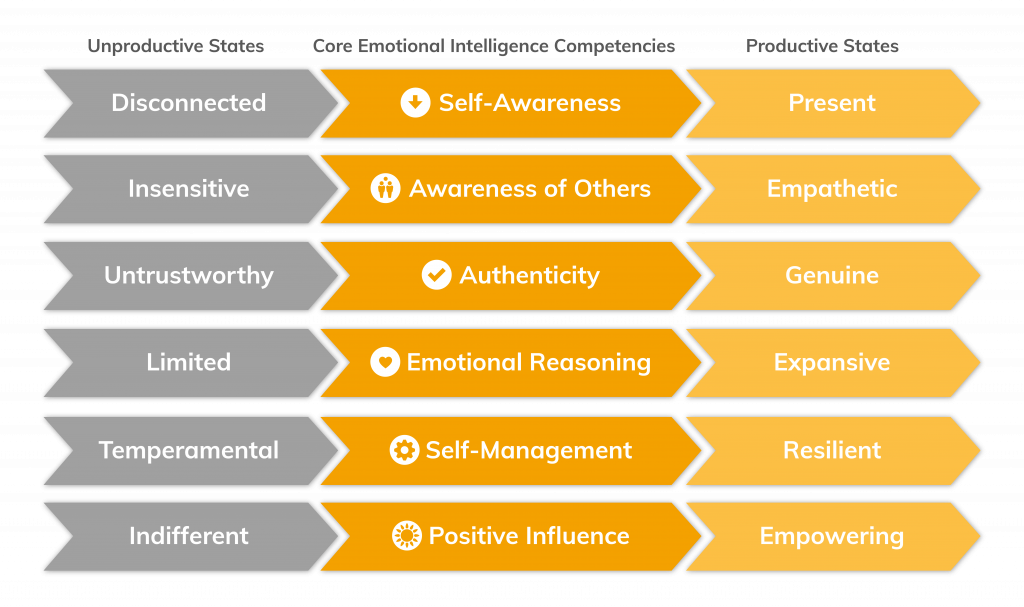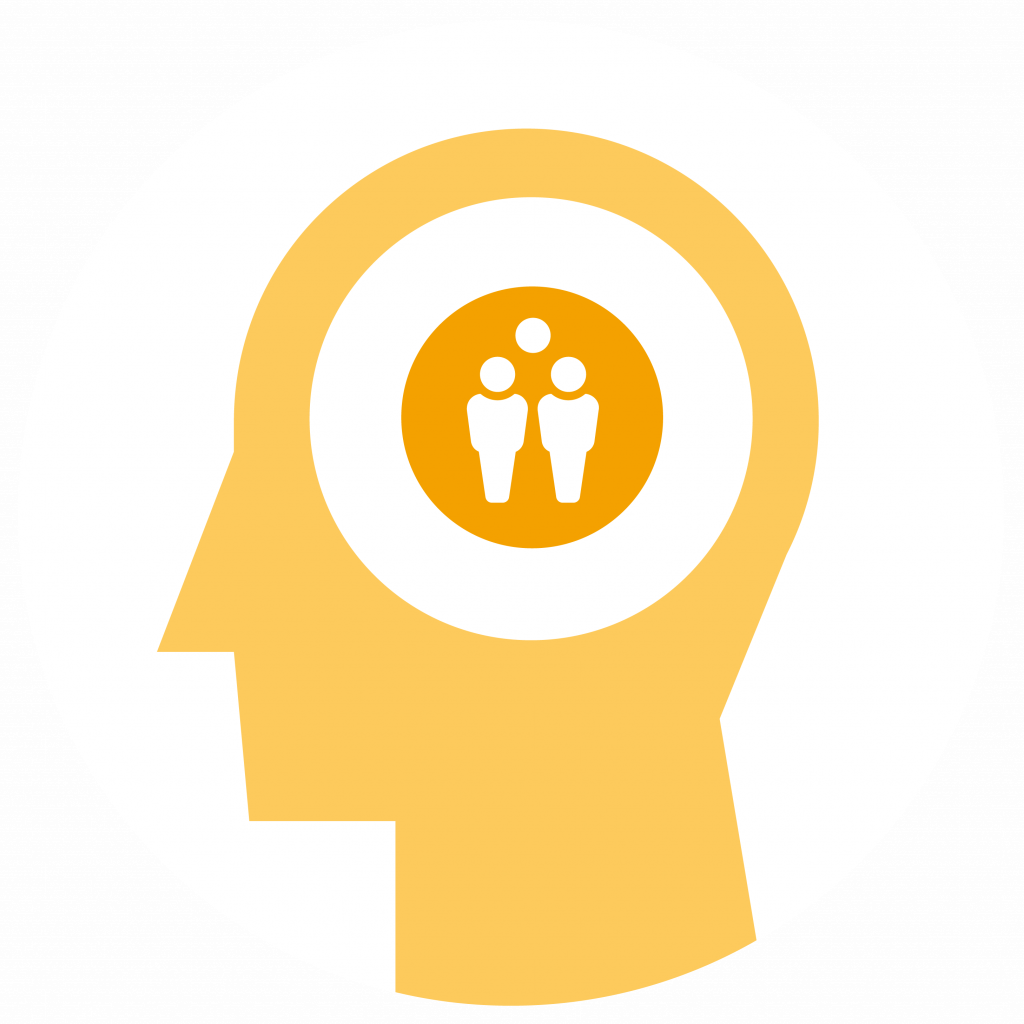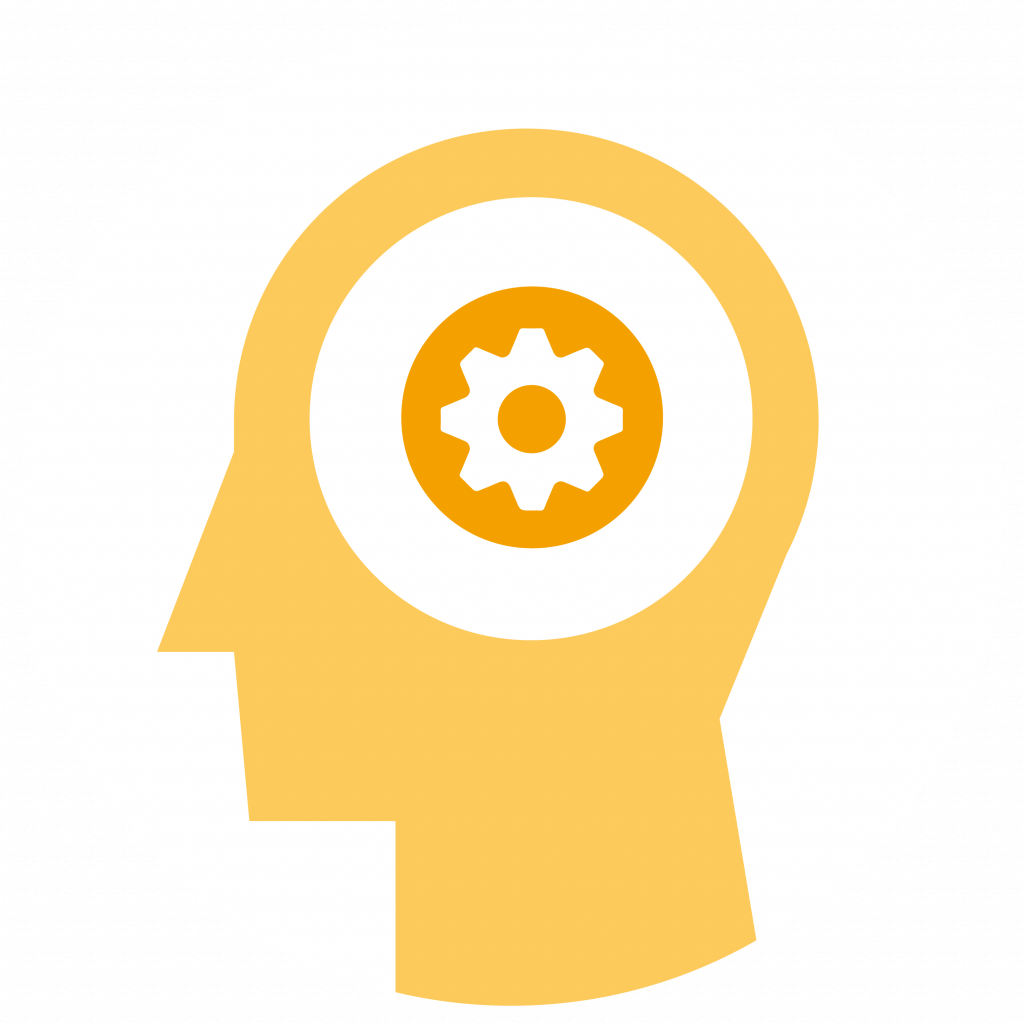Emotional Intelligence
Everyone has emotions. It‘s a simple fact – a part of our being human. And whether we realise it or not, these emotions impact us every day. They also impact those around us, both in the workplace and in our personal lives.
Think about it for a moment. Think of a time when you experienced an emotion; for example, joy. Perhaps you had a great weekend or accomplished a difficult task at work. How did this emotion impact your mood, your energy levels and the conversations you had with friends or co-workers? Now think of a different emotion; for example, anger. Perhaps a co-worker said something that ‘rubbed you the wrong way‘ or you thought that a friend betrayed a confidence. How did this emotion impact your mood and your behaviours? Perhaps you sent an angry email or said something in the heat of the moment that you later regretted.
What is emotional intelligence?
Dr Ben Palmer, Genos International CEO and respected world leader in Emotional intelligence (EI) explains.

What is Emotional Intelligence?
Emotional Intelligence (EI) or emotional quotient (EQ) is a set of skills that help us better perceive, understand and manage emotions in ourselves and in others. Collectively they help us make intelligent responses to, and use of, emotions. These skills are as important as your intellect (IQ) in determining success in work and in life.
Everyone, no matter what job function, has interactions with other people. Your capacity to understand your emotions, to be aware of them and how they impact the way you behave and relate to others, will improve your ‘people‘ skills and help you ultimately be more satisfied and successful.
Applied Emotional Intelligence –
The Difference It Makes
In the workplace, emotional intelligence underlies our self-awareness, empathy, leadership and resilience. In our world of ‘do more with less’, where continuous change is the norm and effective collaboration is essential, these skills are fundamental to our success.
People who have been through our programs feel better at work, facilitate more productive work environments, and better lead and engage others.

The Genos Emotional Intelligence Model
The Genos model shown below comprises a set of emotionally intelligent workplace behaviour competencies. Competencies represent skills and behaviours, based on underlying abilities and experiences, that are measurable and observable. The six emotionally intelligent leadership competencies of the Genos model capture the skills and behaviours that manifest from emotional intelligence abilities.
The Genos Model of Emotional Intelligence, including the six core skills is as follows:

The competencies of the model help us consistently demonstrate the productive being states on the right side of the model, as opposed to the unproductive being states, that we can all be at times, on the left side of the model.

Emotional Self-Awareness
Self-Awareness is about being aware of the way you feel and the impact your feelings can have on decisions, behaviour and performance.
People who are emotionally self-aware are conscious of the role their feelings can play in these areas, and are better equipped to manage this influence effectively. When we are emotionally self-aware we are present with the role feelings are playing in our decisions, behaviour and performance. When we are not, we are often disconnected from this influence.

Emotional Awareness of Others
Awareness of others is about perceiving, understanding and acknowledging the way others feel. This skill helps us identify the things that make people feel valued, listened to, cared for, consulted, and understood.
It also helps us demonstrate empathy, anticipate responses or reactions, and adjust our behaviour so that it fits well with others. When we demonstrate this skill effectively we come across as being empathetic. People who do not demonstrate this skill can come across as being insensitive to the way others feel.

Authenticity
Authenticity is about openly and effectively expressing oneself, honouring commitments and encouraging this behaviour in others. It involves honestly expressing specific feelings at work, such as happiness and frustration, providing feedback to colleagues about the way you feel, and sharing emotions at the right time, to the right degree and, to the right people.
People high in authenticity are often described as genuine whereas people low in this skill are often described as untrustworthy.

Emotional Reasoning
Emotional reasoning is about using the information in feelings (from oneself and others) when decision-making. It involves considering your own and others’ feelings when making decisions, combining the information in feelings with facts and technical information, and communicating this decision-making process to others.
Feelings and emotions contain important information. When this type of emotional information is combined with facts and technical information, people make expansive, creative and well thought-out decisions

Emotional Self-Management
Self-Management is about managing one’s own mood and emotions, time and behaviour, and continuously improving oneself. The modern workplace is generally one of high demands and pressure, and this can create negative emotions and outcomes. Our mood can be very infectious and can therefore be a powerful force in the workplace; productively or unproductively.
This skill helps people be resilient and manage high work demands and stress rather than being temperamental at work. People who are proficient in managing their own emotions are optimistic and look to find the opportunities and possibilities that exist even in the face of adversity.

Positive Influence
Positive influence is about positively influencing the way others feel through problem solving, feedback, recognising and supporting others work. It involves creating a positive working environment for others, helping others find effective ways of responding to upsetting events and effectively helping people resolve issues that are affecting their performance.
This skill helps people create a productive environment for others. Positive Influence equips you with the capacity to encourage colleagues to cooperate and work effectively together. People who can positively influence others’ moods, feelings and emotions are empowering to work with and easily motivate those around them.
Case Studies
Read how Genos Emotional Intelligence was game-changing for these businesses, and life-changing for their people.
The impact of EI development in just 1 year: Cargotec
Cargotec
EI in leadership and employee engagement IBM
IBM
How EI improvements boosted sales revenue
Sanofi-Aventis
